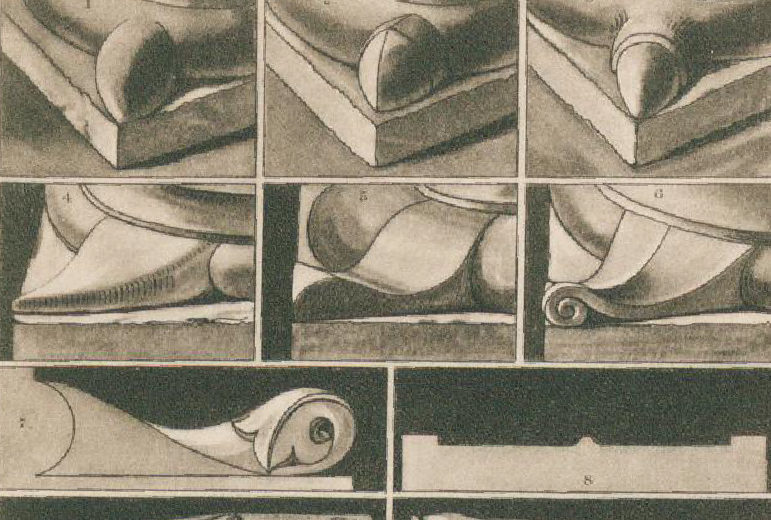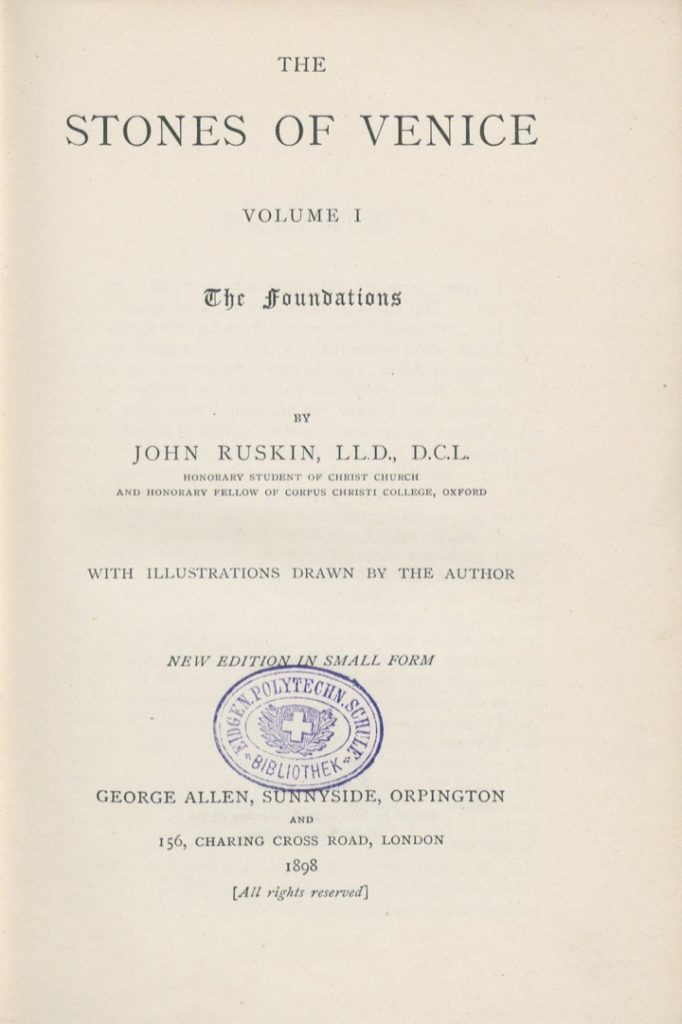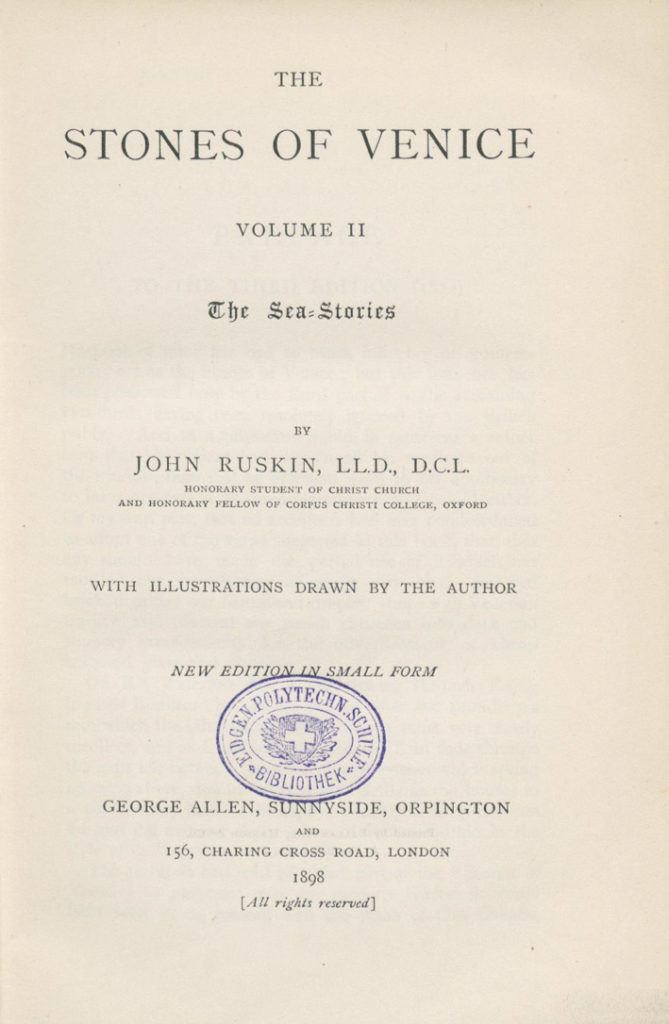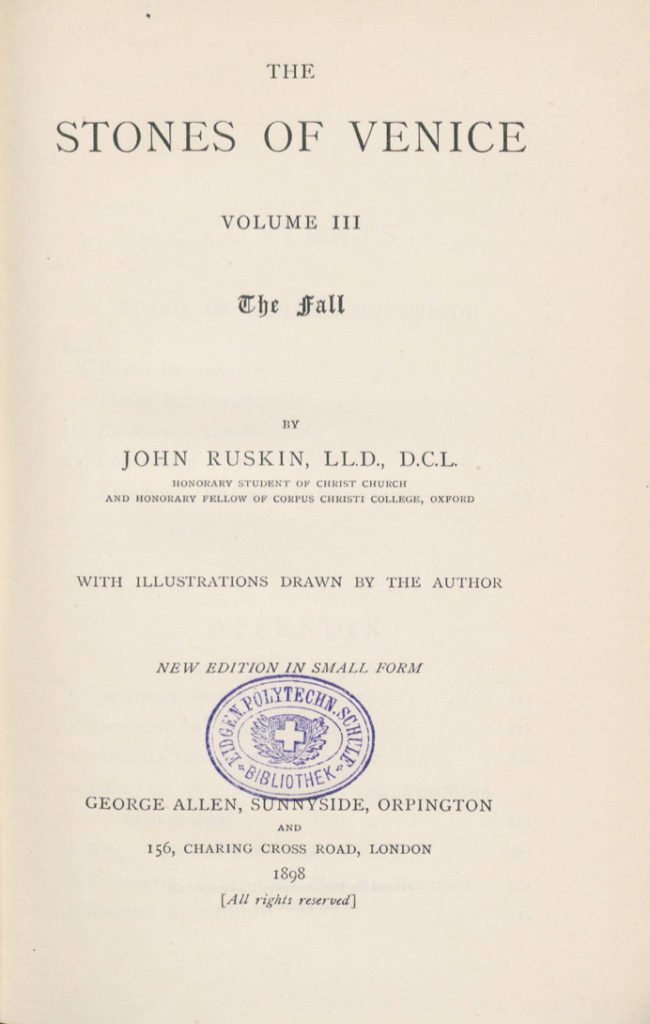
Ruskin, The Stones of Venice
The Stones of Venice is a three-volume treatise on Venetian art and architecture by English art historian John Ruskin, first published from 1851 to 1853. The Stones of Venice examines Venetian architecture in detail, describing for example over eighty churches. He discusses architecture of Venice’s Byzantine, Gothic and Renaissance periods, and provides a general history of the city.
Download
Ruskin_The Stones of Venice.pdf
Ruskin_The Stones of Venice.txt
Ruskin_The Stones of Venice.html
Ruskin_The Stones of Venice.jpg
Ruskin_The Stones of Venice.zip



←
Previous Article


